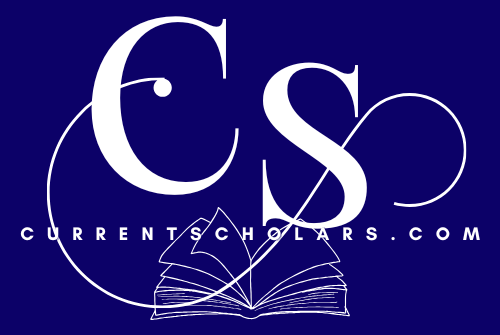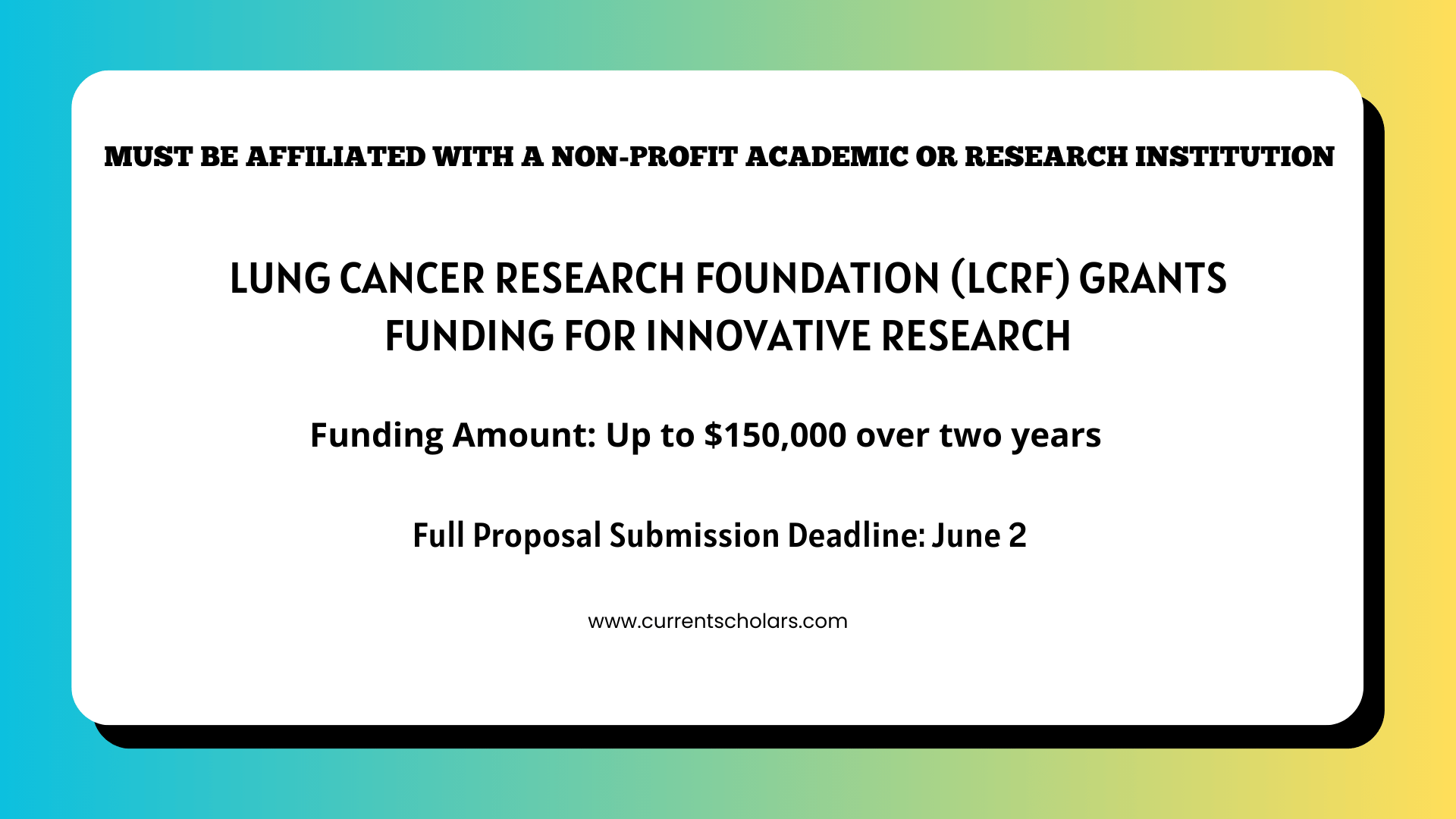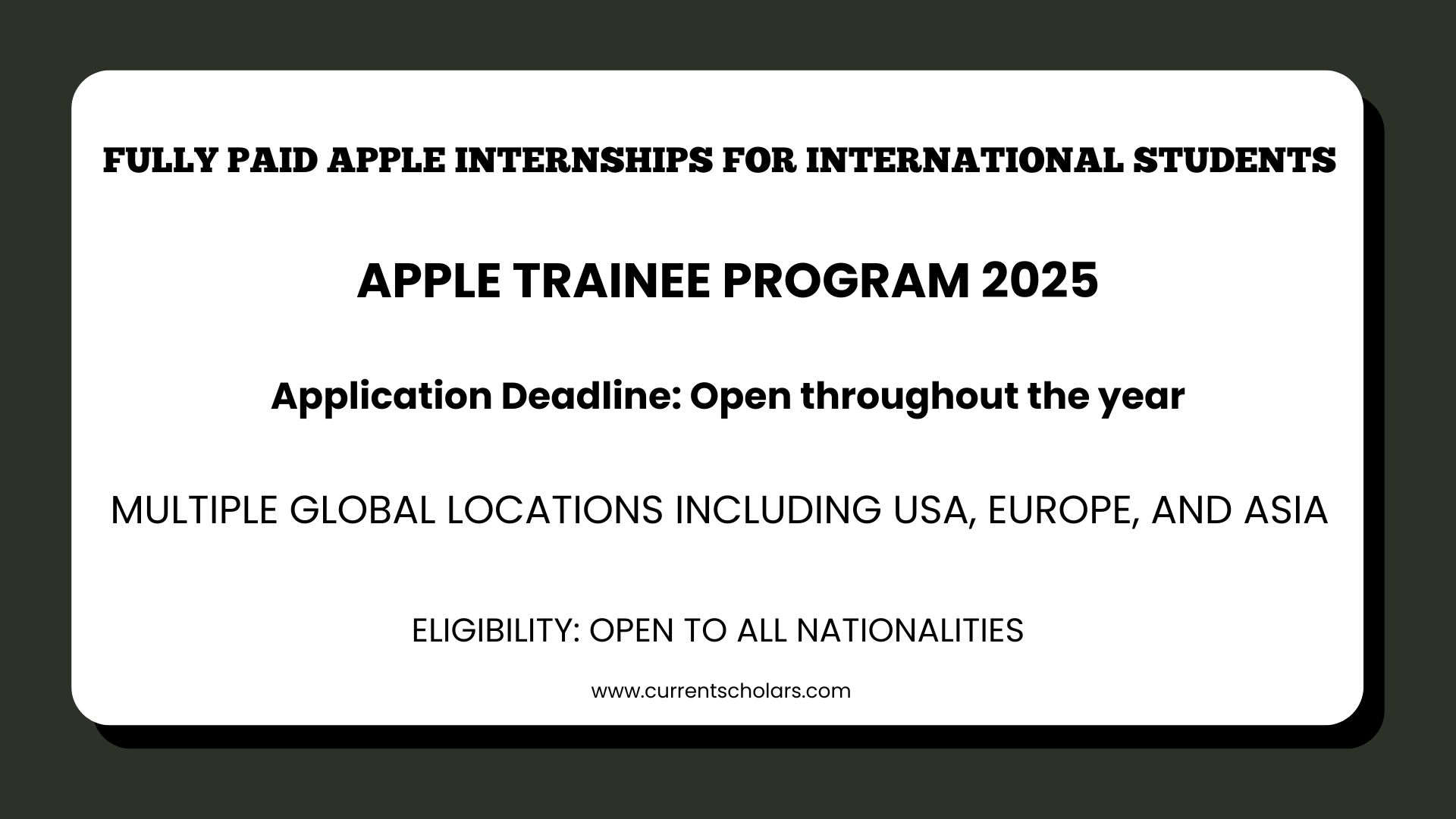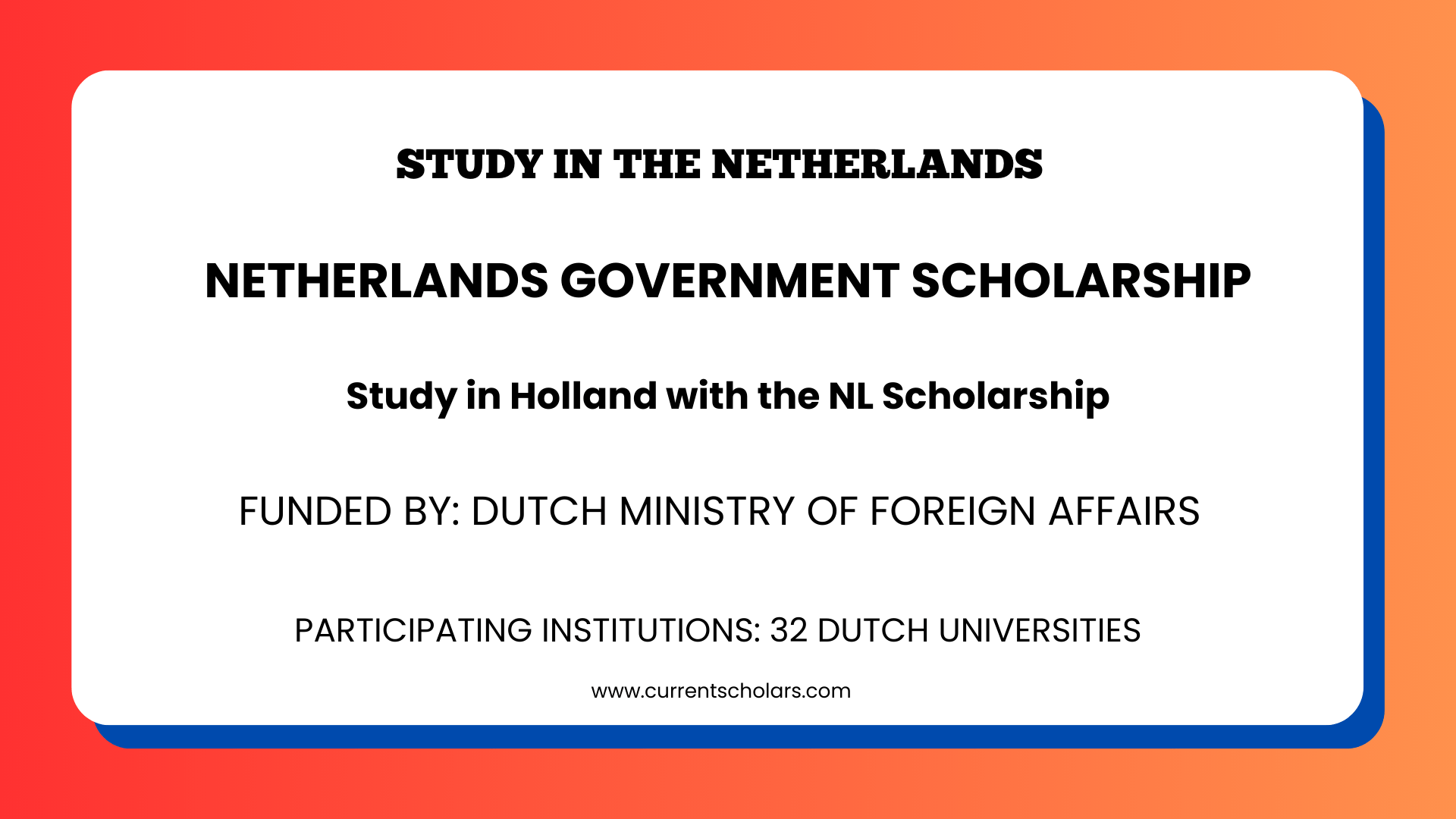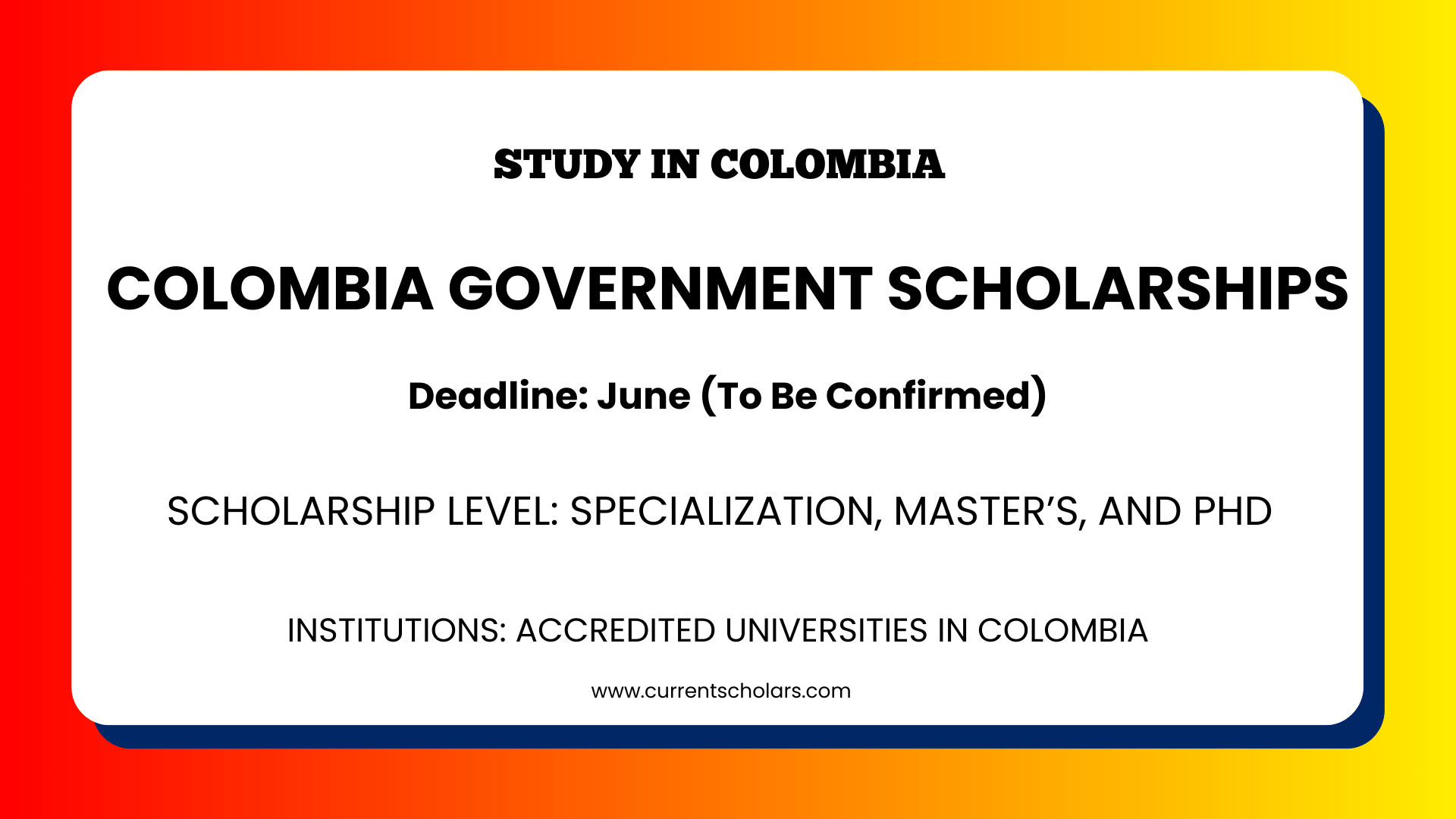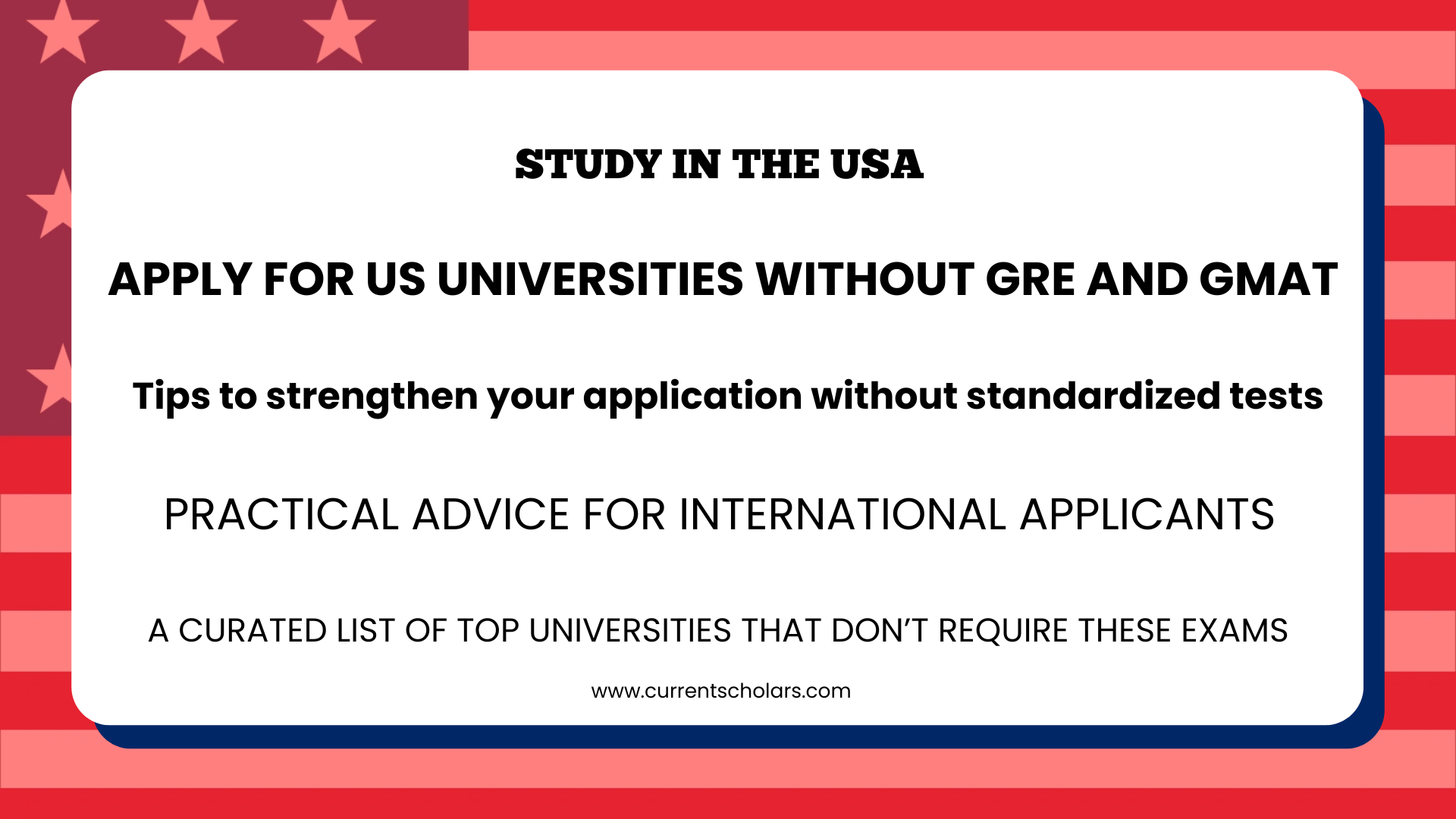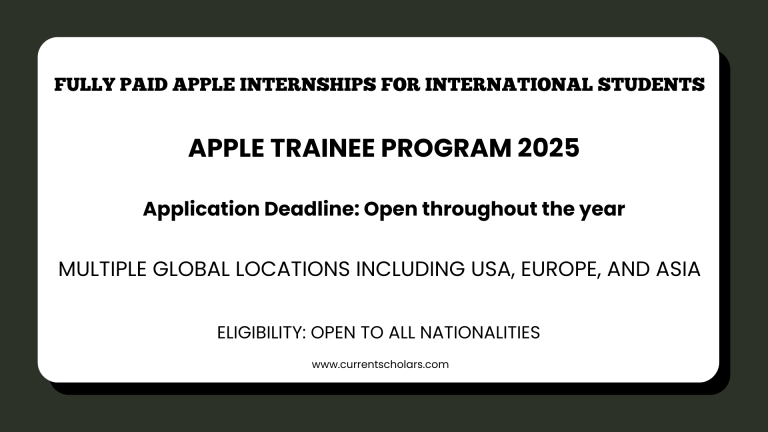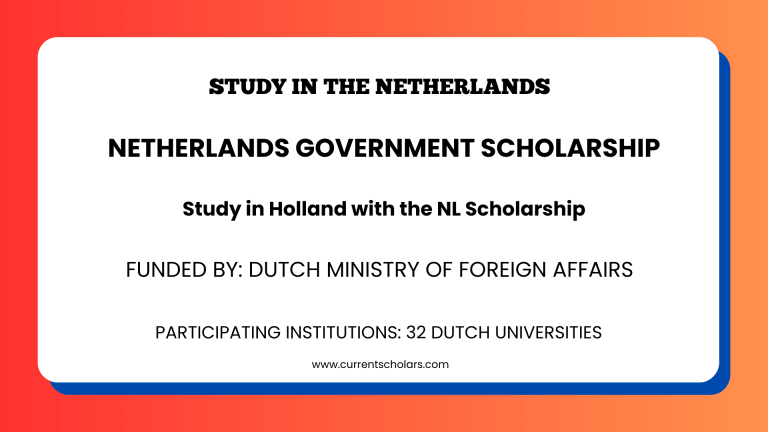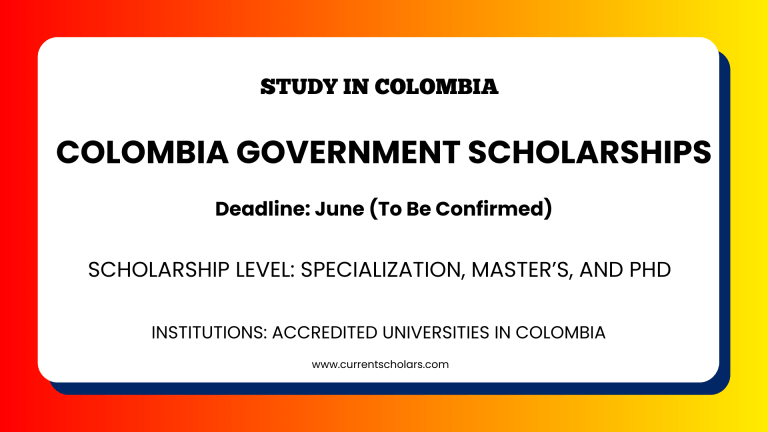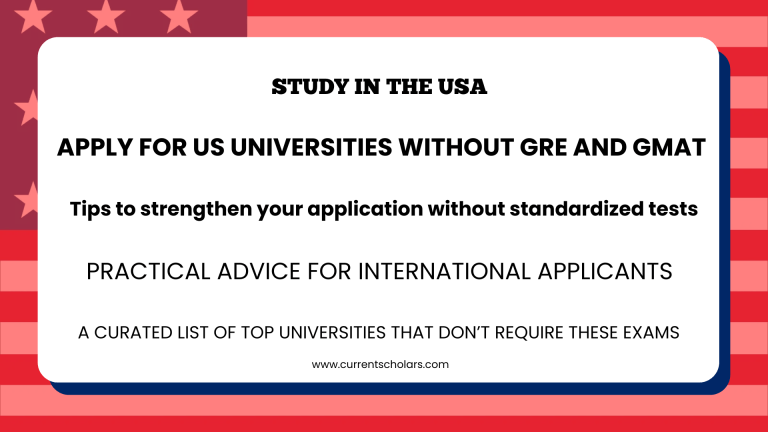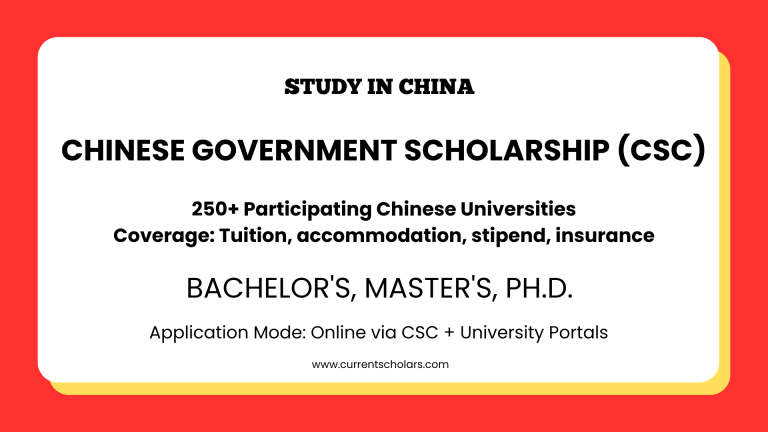The Lung Cancer Research Foundation (LCRF) Grants 2025 provide funding opportunities for groundbreaking research in lung cancer prevention, diagnosis, treatment, and therapy resistance. These grants support postdoctoral researchers, clinical fellows, and early- to mid-career investigators seeking to advance scientific understanding and improve patient outcomes.
Summary
- Funding Amount: Up to $150,000 over two years
- Eligibility: Open to postdoctoral, clinical, early-career, and mid-career researchers (within 10 years of faculty appointment)
- Institutional Requirement: Must be affiliated with a non-profit academic or research institution
- Application Process: Two-step process (Letter of Intent (LOI) → Full Proposal Submission)
- LOI Submission Deadline: March 3, 2025
- Notification of LOI Status: April 18, 2025
- Full Proposal Submission Deadline: June 2, 2025
Grant Categories
1. LCRF Leading Edge Research Grant Program
Supports pioneering studies on:
- Lung cancer biology and tumor progression
- Biomarker identification for early detection and treatment
- Machine learning & AI applications in lung cancer research
- Targeted & immunotherapies with enhanced efficacy and reduced toxicity
- Genetic and environmental factors in lung cancer development
- Disparities in lung cancer outcomes based on smoking, genetics, and societal factors
- Bioengineering innovations: nanotechnology, theranostics, controlled drug release, and gene therapy
- Supportive care solutions: palliative care and telemedicine for patient management
2. LCRF Research Grant on Prevention & Early Detection
Focuses on enhancing early diagnosis, risk stratification, and lung cancer prevention through:
- Advanced screening techniques and biomarker-based diagnostics
- Liquid biopsy and genomic testing for NSCLC and SCLC
- AI-driven imaging solutions for early-stage lung cancer detection
- Epidemiological studies on risk factors influencing lung cancer development
- New strategies to improve screening participation and accessibility
3. LCRF Research Grant on Overcoming Resistance in Lung Cancer
Funds studies on drug resistance mechanisms in lung cancer therapy, covering:
- Therapy resistance in oncogene-driven lung cancer (e.g., histological transformation, uncommon mutations)
- Resistance in chemotherapy, immunotherapy, and radiotherapy
- Innovative treatment approaches to overcome resistance and improve therapeutic efficacy
- Advanced biomarker development for monitoring treatment response and relapse risk
- Targeting resistant metastases in brain and leptomeninges
4. LCRF Minority Career Development Award (CDA)
Dedicated to early-career minority researchers from underrepresented racial/ethnic groups, supporting studies in:
- Lung cancer biology & progression
- Early detection and screening innovations
- Genetic and environmental influences on lung cancer
- Therapeutic resistance and new treatment modalities
- Disparities in lung cancer care and access to treatment
- Bioengineering and nanotechnology-based cancer solutions
5. Bayer Research Award on Innovative Therapeutic Strategies for HER2-Altered Lung Cancers
Supports clinical trials and translational research targeting HER2-mutated lung cancers, emphasizing:
- Novel therapeutic approaches: TKIs, antibody-drug conjugates, cell therapies
- Mechanisms of resistance and tumor microenvironment studies
- Patient-centered research with direct involvement of lung cancer advocates
Eligibility Criteria
- Must be affiliated with a non-profit academic or research institution
- Open to postdoctoral, clinical, early-career, and mid-career investigators
- Minority CDA applicants must belong to underrepresented racial/ethnic groups in health sciences
Required Documents
- Letter of Intent (LOI)
- Full research proposal (for shortlisted applicants)
Selection Process
Step 1: LOI Review
- Assesses research relevance, innovation, and impact
- Selected applicants invited for full proposal submission
Step 2: Full Proposal Review
- Evaluates scientific merit, feasibility, and potential contributions to lung cancer research
- Funding decisions based on expert peer review and budget availability
How to Apply?
Applications must be submitted via the LCRF Grant Application Portal. Full details and submission links are available in the Request for Proposals (RFP) for each grant category.
For further details, visit the LCRF Grants Page or contact grants@LCRF.org.
